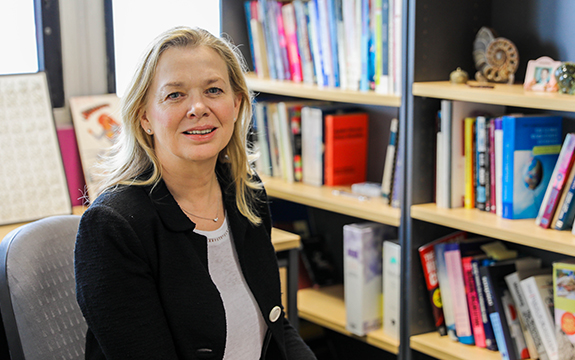Swinburne updates human resources course to address changing business needs

In Summary
- Swinburne’s Master of Human Resources Management has been refreshed
- The new course will commence in Semester 1 2019 through Swinburne's AGSE
- Siemens and Medibank will co-design and co-deliver the course
Swinburne is launching a refreshed postgraduate course in human resources (HR) management as the demand for HR professionals skilled in organisational change management increases.
Commencing in Semester 1 2019, the Master of Human Resources Management will upskill existing HR professionals and provide new entrants into the discipline with the skills required to lead people effectively in a rapidly changing business environment.
The course will be delivered through Swinburne’s Australian Graduate School of Entrepreneurship (AGSE), with a strong focus on collaborating with industry to co-design and co-deliver the innovative new units.
Director of the Master of Human Resources Management, Professor Anne Bardoel, says the updated course will address gaps in HR education as emerging technologies such as big data change the way organisations operate.
“Disruptive technologies such as big data and artificial intelligence do not remove the need for organisations to employ people, but rather escalate the demand for perceptive and skilled human resources managers,” Professor Bardoel says.
“We have completely revised the program’s structure by removing units that are outdated, retaining those that teach the fundamentals of HR skills and adding units that align with the current needs in the industry.”
Units such as human capital analytics will address the increasing use of big data with a statistical focus on best practices for managing people.
“This refreshed degree, including units designed to skill people in managing diversity, make this course one of the most current and real-world HR programs in Australia.”
Working with Siemens to produce career-ready HR professionals
In addition to refreshing its course, Swinburne has partnered with Siemens to co-design and co-deliver elements of the Master of Human Resources Management.
Drawing upon the expertise of its HR professionals, Siemens will co-create units including Human Resources Fundamentals, Strategic Human Resource Management and the Leading Change applied project.
Siemens will also provide case studies, industry speakers and consult with the students, helping them to graduate with industry-relevant experience.
Head of Human Resource at Siemens, Nicolette Barnard, says the company is excited to partner with the Swinburne to deliver this refreshed and innovative course.
“Collaboration between industry and academia is critical to preparing the workforce of the future. Siemens has had a fantastic three years working with Swinburne on the multi-award-winning digital apprenticeship program, the first-of-its-kind in Australia, and we look forward to continued collaboration with the university,” Ms Barnard says.
“As we move into the fourth industrial revolution where new realities such as machine learning and artificial intelligence shapes our environments, the functions of human resources and leadership will evolve in tandem.
“How we adapt and help others adapt to these changes will be core to our future success. As a global technology powerhouse, Siemens can share best practises from the world with future Swinburne students.”
Managing workplace diversity and inclusion with Medibank
Swinburne has also partnered with Medibank to co-design and co-deliver a new addition to the program, the Managing Workplace Diversity and Inclusion unit.
Medibank will provide guest speakers with expertise in the field of managing diversity, engaging students in real-world scenarios that will prepare them for their future careers.
Students will also have the opportunity to attend relevant diversity and inclusion related events run by Medibank, giving them the chance to network and learn from those with experience in the industry.
Group Executive of People and Culture at Medibank, Kylie Bishop, says it is crucial for HR professionals to be proficient in managing a diverse workplace in order to enhance the performance of employees and their organisation.
“At Medibank, we have a responsibility to work towards equality in health and wellbeing across the community and we can share our learning and experience with Swinburne’s students,” Ms Bishop says.
“We all have a role to play in challenging biases and doing what’s right, whether that’s around disability or disadvantage.”

